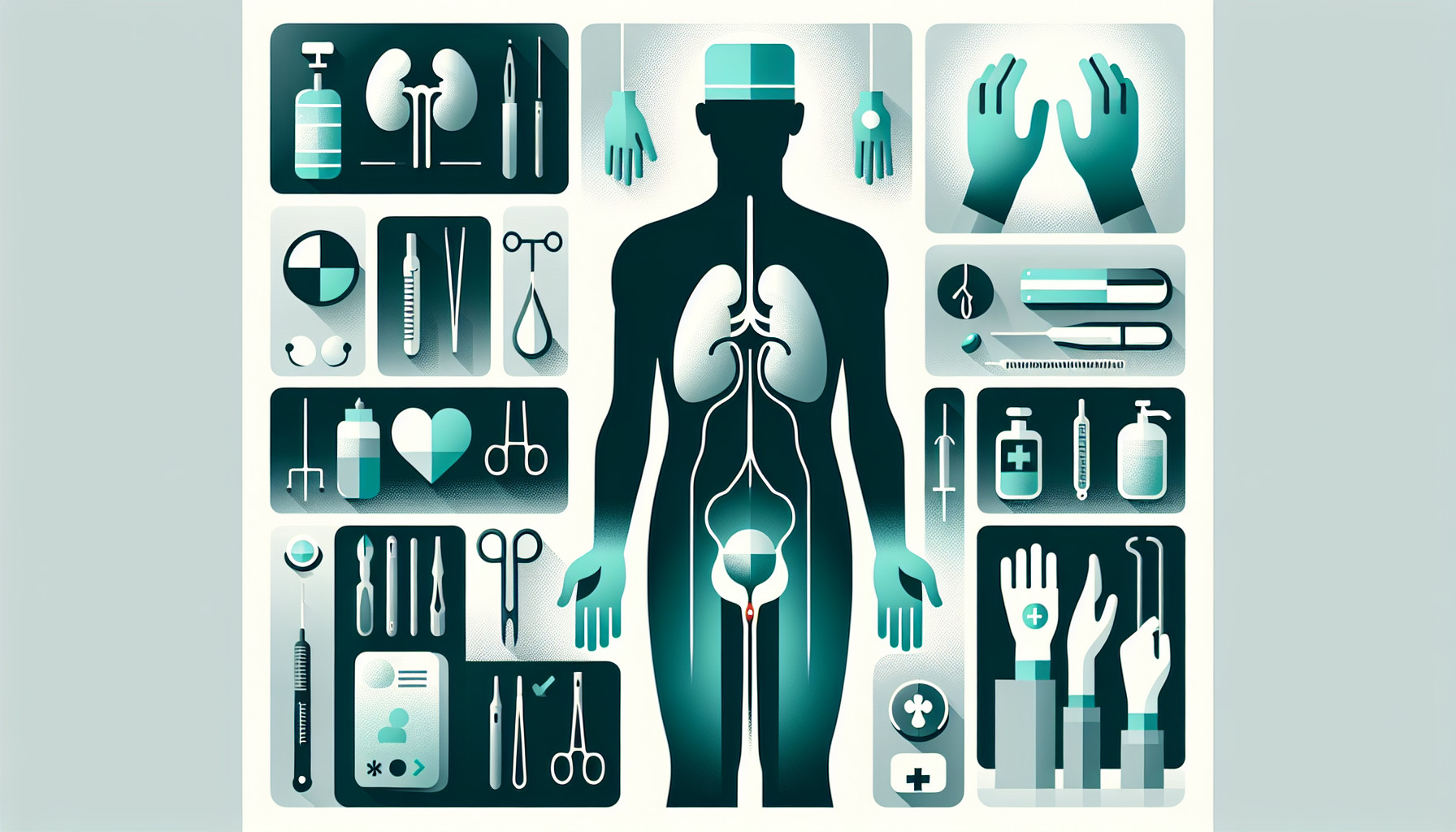Our Summary
This research looked at a complication that can occur after kidney removal surgery (nephrectomy) known as a chyle leak. Chyle leaks happen when lymph fluid, a clear fluid that circulates in the body, leaks out from the lymphatic system. This can happen because the lymphatic vessels are often not as visible as blood vessels, and can be accidentally damaged during surgery.
From 2021 to 2023, the researchers studied 158 patients who had nephrectomy for various reasons. They found that about 5% of these patients developed a chyle leak. The majority of these leaks occurred in patients who had the surgery on the left kidney.
They also found that patients with a higher body mass index (BMI), those who had the surgery on the left kidney, and patients who had a history of kidney infection were more likely to develop a chyle leak. However, no single factor could be pinpointed as the main cause of chyle leaks.
Most of the leaks could be managed by modifying the patient’s diet, but two patients needed drug therapy. Importantly, patients who developed a chyle leak stayed longer in the hospital.
In conclusion, while chyle leaks are not very common after kidney removal, they do happen and are associated with a longer hospital stay. They are more likely to occur in people with higher BMI, those who have surgery on their left kidney, and those with a history of kidney infection. Most of the time, they can be managed with dietary changes.
FAQs
- What is a chyle leak and how does it occur after a nephrectomy?
- What percentage of patients developed a chyle leak after a nephrectomy according to the research?
- What factors increase the likelihood of a chyle leak after a nephrectomy?
Doctor’s Tip
A helpful tip a doctor might tell a patient about nephrectomy is to maintain a healthy body weight and follow a balanced diet to reduce the risk of developing a chyle leak after surgery. Additionally, it is important to follow post-operative care instructions carefully and report any unusual symptoms or complications to your healthcare provider promptly.
Suitable For
Patients who are typically recommended for nephrectomy include those with:
Kidney cancer: Nephrectomy is often recommended for patients with kidney cancer, especially if the cancer is localized to the kidney and has not spread to other organs.
Kidney stones: Patients with large kidney stones that cannot be treated with other methods may require nephrectomy to remove the affected kidney.
Kidney damage: Patients with severe kidney damage or chronic kidney disease may require nephrectomy if the affected kidney is not functioning properly.
Polycystic kidney disease: In some cases, patients with polycystic kidney disease may require nephrectomy if the kidneys are severely enlarged and causing symptoms.
Kidney donation: Individuals who choose to donate a kidney for transplantation may undergo nephrectomy to remove one of their kidneys for the recipient.
Trauma: Patients who have experienced severe trauma to the kidney, such as a gunshot wound or car accident, may require nephrectomy if the kidney is severely damaged.
Recurrent kidney infections: Patients who have recurrent kidney infections that do not respond to other treatments may require nephrectomy to prevent further complications.
Overall, nephrectomy is a common surgical procedure recommended for a variety of kidney-related conditions, and it is important to discuss the risks and benefits with a healthcare provider before undergoing the procedure.
Timeline
Before nephrectomy:
- Patient is diagnosed with a condition that requires kidney removal
- Patient undergoes pre-operative evaluations and tests to assess their overall health and fitness for surgery
- Patient is informed about the procedure, risks, and potential complications of nephrectomy
- Surgery date is scheduled and patient prepares for the procedure
After nephrectomy:
- Patient undergoes nephrectomy surgery to remove the affected kidney
- Patient is closely monitored in the recovery room for any immediate post-operative complications
- Patient is transferred to a hospital room for further recovery and care
- Patient may experience pain, discomfort, and limited mobility in the days following surgery
- Patient receives pain medication, physical therapy, and other supportive care to aid in their recovery
- Patient is discharged from the hospital once deemed stable and able to manage at home
- Patient continues to follow up with their healthcare provider for post-operative care and monitoring of their remaining kidney function.
What to Ask Your Doctor
Some questions a patient should ask their doctor about nephrectomy and the risk of chyle leaks include:
- What is a chyle leak and how common is it after nephrectomy?
- What factors increase my risk of developing a chyle leak after kidney removal surgery?
- How can chyle leaks be managed if they occur?
- How will you monitor me for signs of a chyle leak after surgery?
- Are there any specific dietary changes I should make to reduce my risk of developing a chyle leak?
- How long can I expect to stay in the hospital after nephrectomy, and how might a chyle leak affect my recovery time?
- Are there any symptoms I should watch for that might indicate a chyle leak?
- What steps will be taken during surgery to minimize the risk of a chyle leak occurring?
- Are there any alternative treatment options available if a chyle leak does occur?
- What can I do to help prevent complications and promote healing after nephrectomy?
Reference
Authors: Sarangi SS, Bhirud DP, Sandhu AS, Aggarwal A, Singh M, Navriya SC, Choudhary GR. Journal: Urologia. 2024 Feb;91(1):33-41. doi: 10.1177/03915603231193189. Epub 2023 Aug 31. PMID: 37650375
